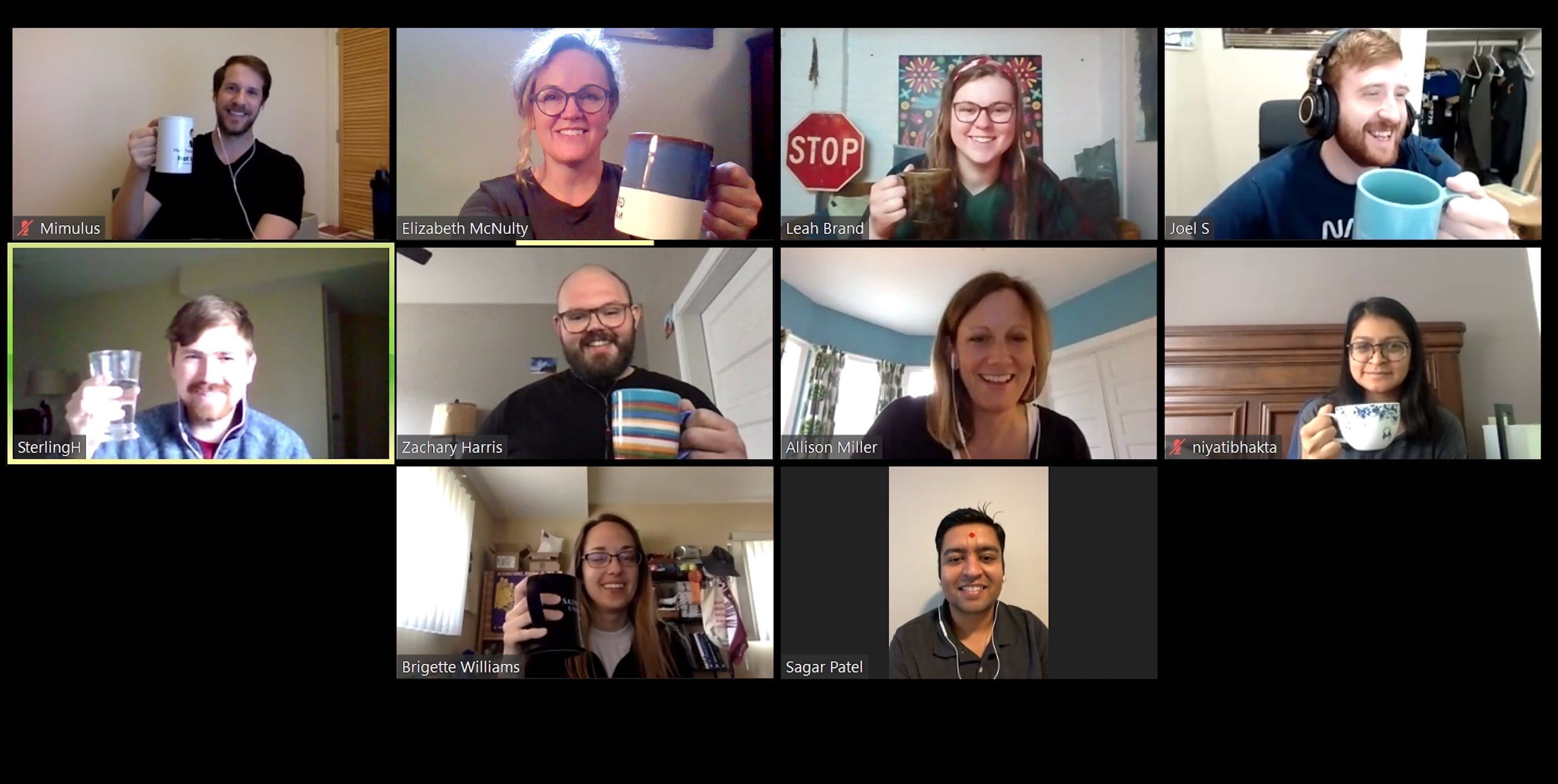The Miller Lab Moves Research Forward During the COVID-19 Pandemic
“I would never have requested this pause, but I am learning to appreciate it,” says Allison Miller, Danforth Center Principal Investigator and Professor of Biology at Saint Louis University.
While we all continue to adapt to the new realities of working during the pandemic, Allison Miller and her lab are finding ways to stay connected and move their work forward. As Allison’s lab moved to work remotely, they set up a daily morning coffee meeting for the lab group at 8:30-9:00 am.
Over the following weeks, Allison began bringing in special guests to their daily calls, including lab alums, scientists from other Danforth Center labs, and external collaborators. This brought new focus to how Allison thinks about her lab’s work as a whole: “These calls are helping everyone catch up on what everyone else is doing. For me, I’m getting a type of reflection from it. It’s giving me time to take stock of what we are doing and where we are going.”

Allison Miller and her lab on a morning coffee meeting with special guest Elizabeth McNulty, Development Communications Manager at the Danforth Center.
The Miller lab is also creating new solutions for collaboration. By happenstance, all of Allison’s lab members had at least one or multiple manuscripts where there was some semblance of a draft forming. Lab Postdoc Matthew Rubin set up a schedule of “writing buddies”. Each lab member was paired up, and at the beginning of the week they would each work on a specific part of their paper. Then they would swap papers, and critically evaluate each others’ work. “Every week, the whole lab is writing something. We are on week five or six and there is no shortage of stuff to read,” says Allison.
This time away from the lab has also allowed the Miller lab time to ponder and analyze their data in new ways. “We’ve realized that there are some common questions that we are addressing in our research, though they weren’t set up that way. Now that we can’t generate new data, it is forcing us to look at everything we have, and what we have is pretty awesome,” explains Allison.
The Miller laboratory explores how long-lived plants respond to dynamic environments, with the goal of developing perennial crops that support ecologically sustainable agricultural systems.